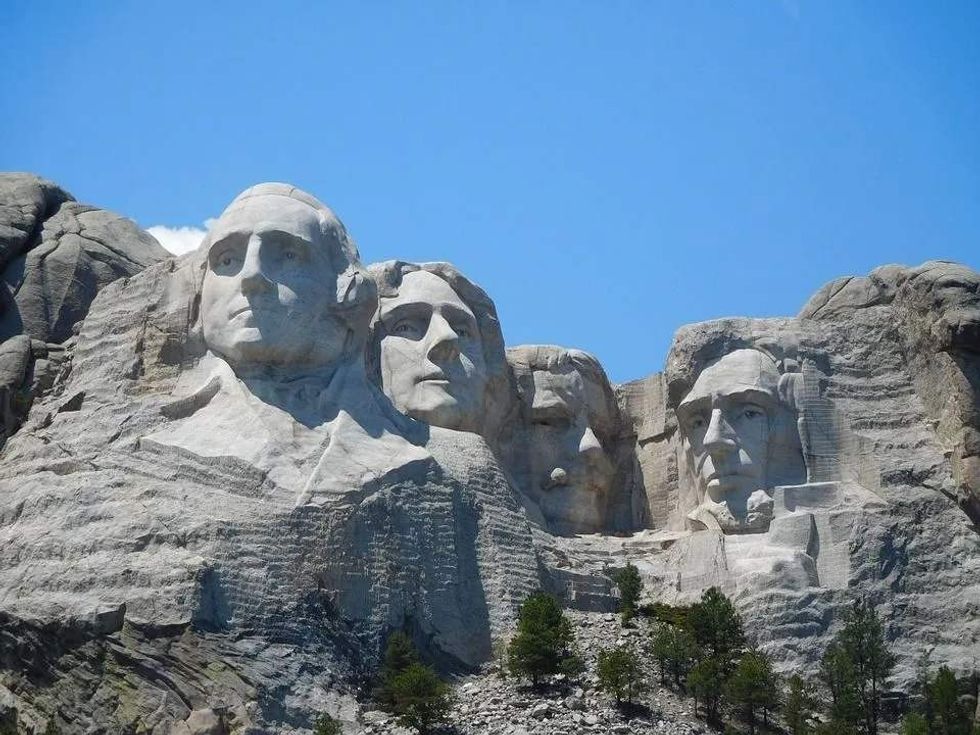Have you ever explored the life of President Theodore Roosevelt? An emblem of American vigor, Roosevelt's dynamic presidency transformed the face of US leadership.
Born into a wealthy New York family in 1858, Theodore, or 'Teddy', as many affectionately called him, overcame childhood health challenges to embrace a life of robust activism and public service. From the battles of San Juan Hill to the corridors of the White House, Roosevelt's legacy is as expansive as the Panama Canal project he championed.
Early Life And Education Facts: The Making Of President Theodore Roosevelt

Before President Theodore Roosevelt earned his place on Mount Rushmore, he was a young boy with a passion for natural history. Roosevelt graduated from Harvard with a focus on biology before jumping headfirst into public service.
- Theodore Roosevelt was born on October 27, 1858, in New York City to a wealthy family.
- As a child, Roosevelt suffered from asthma, which caused him to experience frequent illnesses and kept him from attending school regularly.
- To combat his poor health, young Roosevelt embraced a strenuous life, exercising regularly and taking up boxing lessons.
- Roosevelt was homeschooled by tutors and his parents, who encouraged him to read extensively and pursue his interests in natural history.
- His mother, Martha Bulloch Roosevelt, came from a wealthy Southern family and was known for her charm and grace.
- He developed a lifelong love for the outdoors and spent much of his childhood exploring the countryside around his family's estate in Oyster Bay, Long Island.
- The sense of civic duty and public service that defined Roosevelt's career was a legacy from his father, Theodore Roosevelt Sr., a distinguished businessman and philanthropist.
- As a teenager, Roosevelt traveled widely with his family, visiting Europe, the Middle East, and Africa.
- He attended Harvard University, where he excelled academically and was a member of the Alpha Delta Phi literary society and the Phi Beta Kappa honor society.
- While at Harvard, Roosevelt began writing his first book, 'The Naval War Of 1812', which was published in 1882.
- He graduated from Harvard in 1880, ranking 21st in a class of 177.
- After graduating, Roosevelt briefly attended Columbia Law School but left after one year to pursue a career in politics and public service.
- In 1878, Roosevelt's father died, leaving Roosevelt to take on greater responsibility for his mother and siblings.
- Roosevelt's mother encouraged him to pursue his dreams and supported his decision to enter public life.
- Throughout his childhood and early adulthood, Roosevelt cultivated a wide range of interests, including history, science, literature, and the outdoors, which would shape his future career and legacy.
Facts About Theodore Roosevelt's Rise: From New York To The White House
 Shutterstock
ShutterstockRoosevelt's political journey was far from orthodox. From the streets of New York as York City Police Commissioner to the title of Vice President under William McKinley, his path to the presidency was fueled by relentless determination.
- Theodore Roosevelt began his political career in 1882 when he was elected to the New York State Assembly as a Republican at the age of 23.
- As a state assemblyman, Teddy Roosevelt quickly gained a reputation as a reformer and an opponent of corruption in politics.
- In 1884, Roosevelt experienced a personal tragedy when his wife and mother died on the same day, which led him to temporarily retire from politics and move to the Dakotas to work as a rancher.
- He returned to politics in 1886 and ran unsuccessfully for mayor of New York City.
- In 1889, President Benjamin Harrison appointed Roosevelt as a member of the US Civil Service Commission, where he worked to reform the system and promote merit-based hiring in government.
- Roosevelt's success as a civil service commissioner brought him national attention and helped establish his reputation as a reformer.
- In 1895, Roosevelt became president of the New York City Police Commission, where he worked to combat corruption and improve the efficiency of the police department.
- His tenure as police commissioner was marked by controversy, including his efforts to enforce the Sunday closing law for saloons, which made him unpopular with many working-class New Yorkers.
- In 1897, President McKinley appointed Roosevelt as Assistant Secretary of the Navy, a position he used to advocate for a stronger navy and increased US involvement in world affairs.
- Roosevelt's military service made him a national hero and helped propel him to the governorship of New York in 1898.
- As governor, Roosevelt continued his reform agenda, working to improve labor conditions, regulate corporations, and conserve natural resources.
- In 1900, Roosevelt was selected as McKinley's running mate for vice president.
Facts About Theodore Roosevelt's Presidency: Progressive Policies And The Square Deal
President Roosevelt's tenure was marked by progressive reform and a focus on the common good. His Square Deal was a testament to his commitment to fair treatment for all.
- Ascending to the presidency in 1901 after the tragic demise of President William McKinley, Theodore Roosevelt assumed the role of the United States' 26th President.
- Roosevelt was the youngest person to become president at the age of 42.
- As president, Roosevelt continued to champion progressive policies and helped establish the modern presidency as a powerful force for social and economic change.
- He won the 1904 presidential election in his own right, securing a full term as president.
- Roosevelt's domestic policy, known as the Square Deal, focused on conserving natural resources, controlling corporations, and protecting consumers.
- He established numerous national parks, forests, and wildlife refuges, setting aside more than 230 million acres for conservation.
- Roosevelt signed the Newlands Reclamation Act in 1902, which funded irrigation projects in the American West.
- He took on big business by breaking up monopolies and regulating the railroad industry through the Elkins Act and the Hepburn Act.
- Roosevelt played a key role in ending the 1902 coal strike by threatening to use federal troops to operate the mines.
- He passed the Pure Food and Drug Act and the Meat Inspection Act in 1906, which helped ensure the safety and quality of food and drugs sold in the United States.
- In foreign policy, Roosevelt adopted a 'speak softly and carry a big stick' approach, asserting the US power on the global stage.
- He helped negotiate an end to the Russo-Japanese War in 1905, for which he won the Nobel Peace Prize the following year.
- Roosevelt oversaw the construction of the Panama Canal, which connected the Atlantic and Pacific Oceans and facilitated global trade.
- Roosevelt mediated a dispute between France and Germany over Morocco in the 1906 Algeciras Conference.
- He chose not to run for re-election in 1908 and instead supported his friend and successor, William Howard Taft.
Fun Facts About Theodore Roosevelt: The Vibrant Chronicles Of His Dauntless Spirit
 Facts About Theodore Roosevelt's Presidency: Progressive Policies And The Square DealShutterstock
Facts About Theodore Roosevelt's Presidency: Progressive Policies And The Square DealShutterstockTheodore Roosevelt, a man of unyielding fortitude and endless charisma, lived a life that reads like an adventure novel. From a sickly child to a rough-riding president, his experiences were anything but ordinary.
Let's delve into some of the most captivating aspects of his storied life, revealing the lesser-known, yet fascinating tidbits that helped define the robust legacy of an American icon.
- Theodore Roosevelt was the first president to ride in an airplane, although it happened after his presidency in 1910.
- He was also the first president to be submerged in a submarine, which took place in 1905 off the coast of Long Island.
- Roosevelt was a prolific writer and wrote over 35 books in his lifetime, covering topics such as history, politics, and nature.
- He was an avid collector of animals and kept a variety of pets in the White House, including a small bear, a lizard, and a one-legged rooster.
- Roosevelt was known for his love of coffee and would often drink several cups a day.
- Roosevelt was a boxing enthusiast and continued to spar with partners in the White House until a punch detached his left retina, leaving him blind in that eye.
- He was an accomplished naturalist and helped to catalog many new animal species during his trips to South America and Africa.
- Roosevelt was a speed reader and could read up to three books per day, retaining much of the information he absorbed.
- He was fluent in French and could also speak German and some Italian.
- Roosevelt was an early advocate for American football and helped to popularize the sport during his time as president.
- Roosevelt once delivered a 90-minute speech after being shot in the chest by a would-be assassin, declaring that "it takes more than that to kill a Bull Moose."
- He was a distant cousin of President Franklin D. Roosevelt, who would later serve as the 32nd president of the United States.
Facts About Theodore Roosevelt's Achievements: Global Influence And Military Strategies
President Roosevelt's assertive stance on foreign policy earned his approach the moniker Big Stick diplomacy. This approach was a cornerstone of his administration, particularly during the Spanish-American War.
- Theodore Roosevelt's foreign policy was characterized by his Big Stick diplomacy, which combined military might with diplomatic negotiation.
- He believed in expanding American influence and power abroad, particularly in Latin America and Asia.
- In 1903, Roosevelt helped Panama gain independence from Colombia, which cleared the way for the construction of the Panama Canal.
- He introduced the Roosevelt Corollary to the Monroe Doctrine, asserting the right of the United States to intervene in the affairs of Latin American countries to maintain stability and protect US interests.
- Roosevelt mediated the end of the Russo-Japanese War in 1905, becoming the first American to win the Nobel Peace Prize for his efforts.
- Roosevelt sent the Great White Fleet, a group of 16 battleships, on a world tour from 1907-1909 to demonstrate American naval power and promote goodwill.
- In 1906, he played a key role in the Algeciras Conference, which resolved a crisis between France and Germany over the control of Morocco.
- Roosevelt was a strong advocate for the Open Door policy in China, which sought to ensure equal trading rights for all foreign powers.
- He negotiated the Gentleman's Agreement of 1907 with Japan, which limited Japanese immigration to the United States in exchange for improved relations between the two countries.
- As Assistant Secretary of the Navy, Roosevelt played a significant role in preparing the US Navy for the Spanish-American War.
- During the Spanish-American War, Roosevelt resigned his post and formed the Rough Riders, a volunteer cavalry unit that fought in Cuba.
- He led the Rough Riders in a charge up San Juan Hill, which became a defining moment in his military career and helped establish his reputation as a war hero.
Enduring Facts About Theodore Roosevelt's Post-Presidency And Legacy

Even after leaving office, Roosevelt's presence loomed large in American politics. Though Roosevelt refused a third term, his influence persisted throughout World War I.
- After leaving the White House in 1909, Theodore Roosevelt embarked on a hunting safari in Africa, collecting specimens for the Smithsonian Institution.
- In 1912, Roosevelt ran for president as a third-party candidate for the Progressive Party, also known as the Bull Moose Party.
- During the campaign, Roosevelt was shot in the chest by a would-be assassin but still managed to deliver his scheduled speech before seeking medical attention.
- Roosevelt's third-party candidacy split the Republican vote, ultimately leading to the election of Democrat Woodrow Wilson.
- After the election, Roosevelt retired to his home in Oyster Bay, New York, where he continued to write and speak out on political issues.
- In 1913-1914, Roosevelt embarked on a scientific expedition to the Amazon rainforest, nearly dying from malaria and a leg infection.
- During World War I, Roosevelt was a vocal critic of President Wilson's policy of neutrality and advocated for US intervention on the side of the Allies.
- Roosevelt's four sons all served in the military during World War I, losing his youngest son, Quentin, in action.
- Roosevelt died on January 6, 1919, at the age of 60.
- He was posthumously awarded the Medal of Honor in 2001 for his actions during the Spanish-American War.
- Roosevelt is widely regarded as one of the greatest presidents in US history, known for his leadership, charisma, and vision.
- His face is carved into Mount Rushmore alongside George Washington, Thomas Jefferson, and Abraham Lincoln.
- Roosevelt's legacy includes his conservation efforts, his trust-busting policies, and his commitment to social justice and the common good.
FAQs
What is Theodore Roosevelt known for?
Theodore Roosevelt is known for his dynamic presidency and progressive policies. He was the 26th President of the United States, serving from 1901-1909.
Roosevelt is famed for his domestic policies, especially the Square Deal, reforms aimed at preventing corporate abuse and ensuring consumer protection. He is also remembered for his significant contributions to natural conservation, establishing numerous national parks, wildlife refuges, and forests.
Internationally, he is known for his Big Stick diplomacy and for winning the Nobel Peace Prize for mediating the Russo-Japanese War.
Who was the youngest US president?
Theodore Roosevelt was the youngest person to become President of the United States. He was 42 years old when he assumed office in 1901, following the assassination of President William McKinley. Though John F. Kennedy was the youngest president elected at the age of 43, Roosevelt holds the record for the youngest to serve as president.
Was Theodore Roosevelt in a wheelchair?
No, Theodore Roosevelt was not in a wheelchair during his lifetime. This confusion may arise from President Franklin D. Roosevelt, Theodore Roosevelt's distant cousin, who was diagnosed with polio in 1921 and used a wheelchair due to his condition.
Franklin D. Roosevelt served as the 32nd President of the United States from 1933 until his death in 1945 and was often photographed sitting due to his paralysis.
President Theodore Roosevelt's charismatic leadership and reformist zeal make him an enduring figure in American history.
From charging up San Juan Hill to stewarding the Panama Canal's creation, Roosevelt's robust spirit shaped an era. Immortalized as both a Nobel laureate and a face on Mount Rushmore, President Roosevelt's facts and legacy inspire everyone to dare greatly and pursue a life of service and adventure.
His contributions to conservation and his dynamic role in both domestic and foreign affairs continue to resonate today as America navigates the complex political landscapes of the modern world.
Related Articles Around the Web


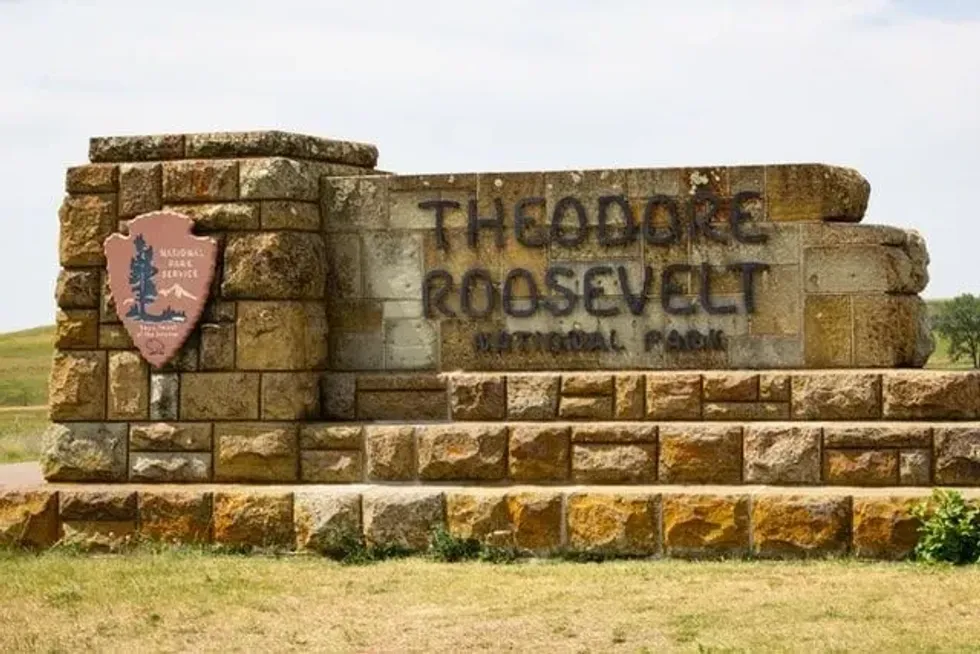

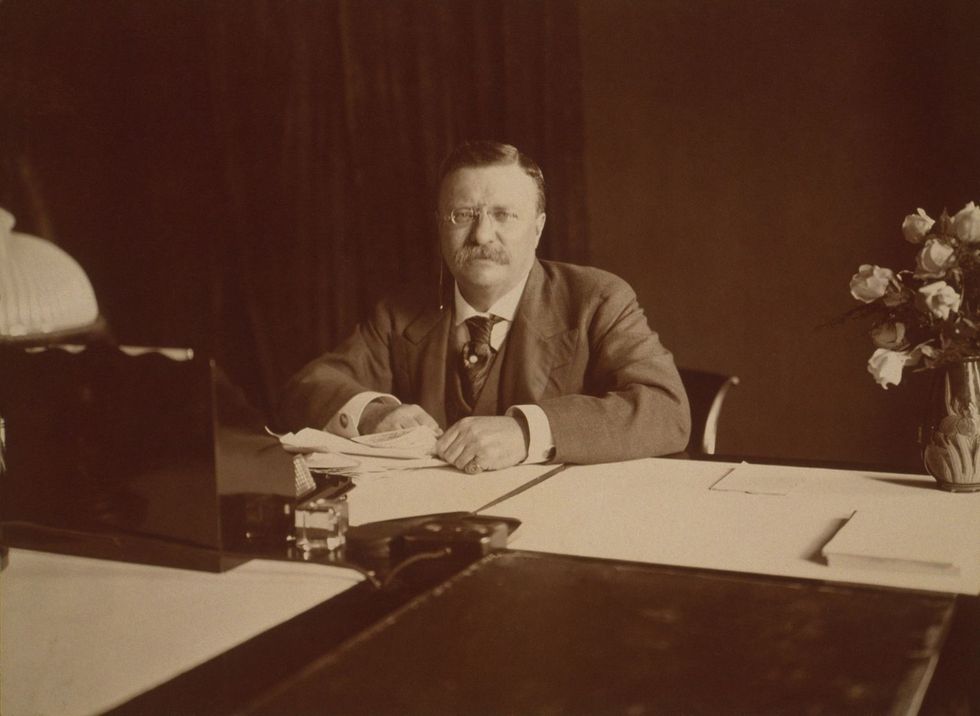
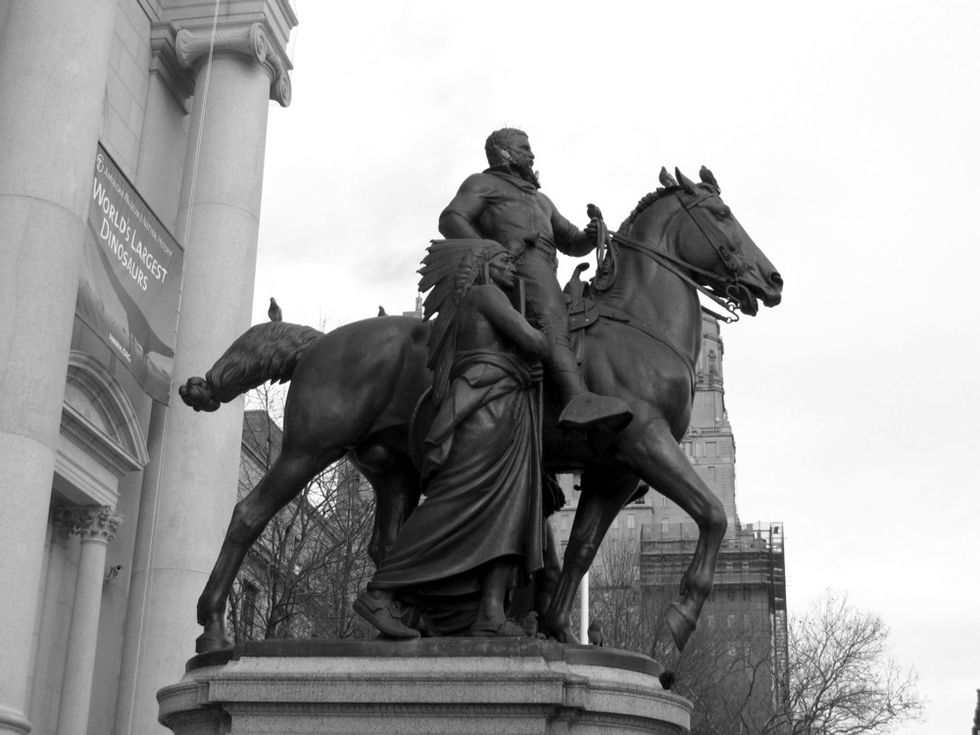 Shutterstock
Shutterstock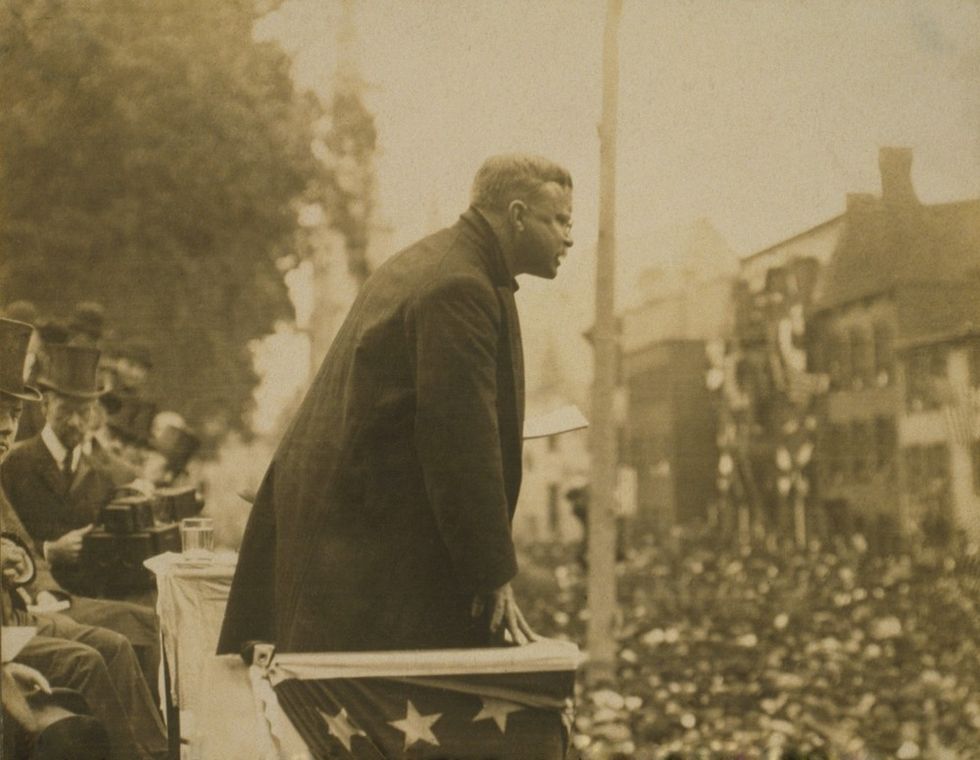 Facts About Theodore Roosevelt's Presidency: Progressive Policies And The Square DealShutterstock
Facts About Theodore Roosevelt's Presidency: Progressive Policies And The Square DealShutterstock